There is different variety of bamboo flooring available in the market. Therefore, we must not get swayed away by the appearance or look of the flooring. You need to pick up the appropriate one which could best serve your purpose. To be able to make a prudent choice in the light of the relevant knowledge about bamboo flooring, you need to have a holistic understanding about how different species of bamboo can cater to your need in order to help you achieve your goal. The purpose of this article is to get you acquainted with the distinguishing features and attributes of different types of bamboo flooring as stated below.
Horizontal bamboo
In this type of bamboo flooring, bamboo is cut into small and thin strips, and then it is dried and glued together in a horizontal position and then it forms a plank. The planks are then clubbed together to build solid bamboo flooring.
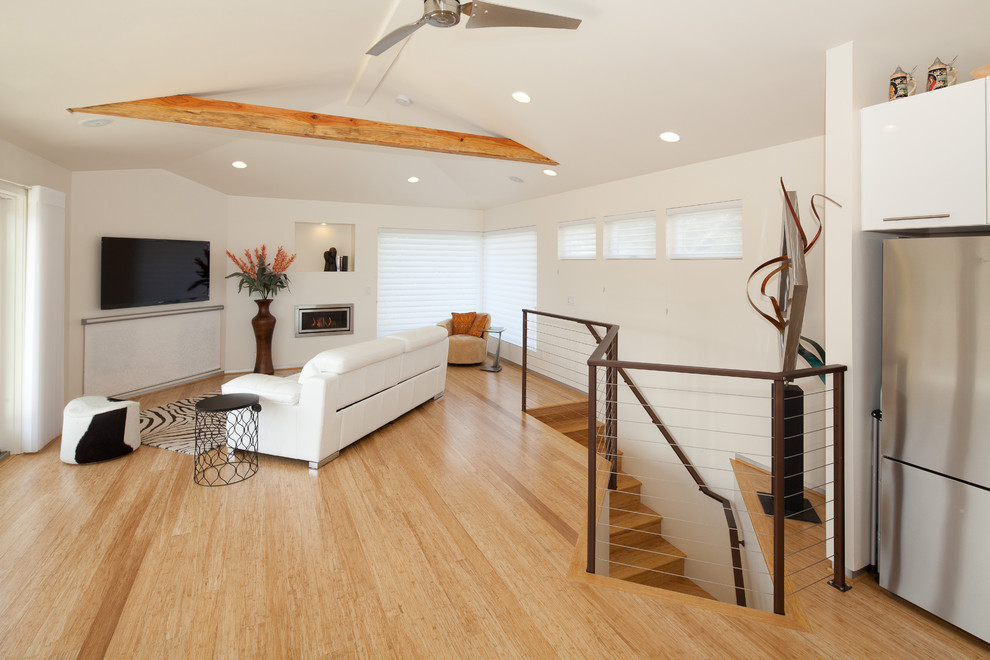
Vertical bamboo:
-it is also similar to horizontal bamboo and is first cut into small strips, and then these strips are dried and glued in upright position. These vertical shaped strips are finally tied together to form a flooring that is solid and durable:
Strand woven bamboo
To create this type of flooring, bamboo is first shredded into strands and fibers. These strands and fibers are then dried and finally compressed together under extreme pressure. The result of this procedure is a plank or block of flooring that has a random grain pattern and it is finally joined together to form a floor. Strand woven bamboo flooring is sturdy, durable, and more versatile compared to two bamboo flooring options. Such bamboo flooring is available in different plank sizes.
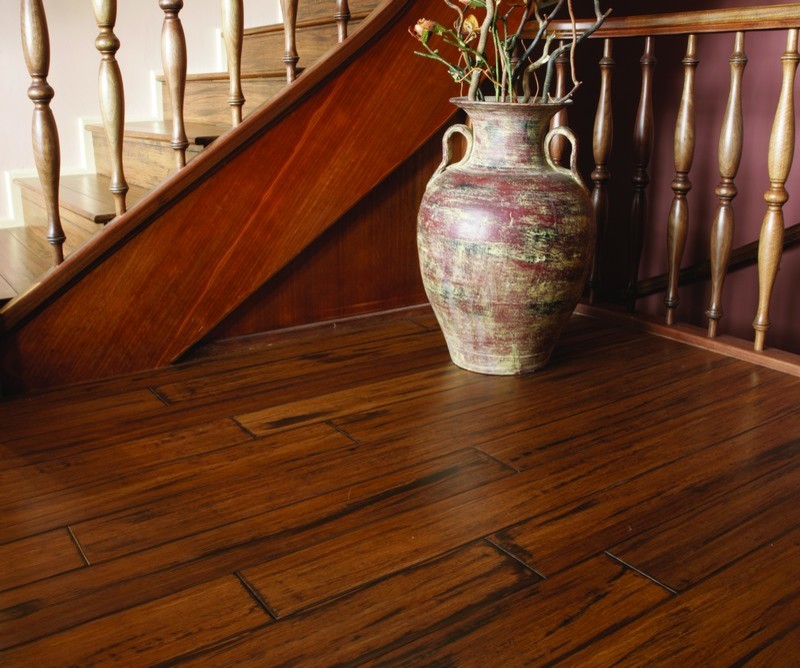
Tongue and groove bamboo
This is a traditional bamboo flooring. One will have to get it glued the groves and tongue together to install it properly. Such flooring is available both in vertical and horizontal pattern.
- Click fitting bamboo – This bamboo flooring is quite simple and easy to manufacture and install but it is available only in strand woven bamboo.
- Parquet block bamboo – it is a smaller block of flooring that is used to build beautiful geometric patterns.
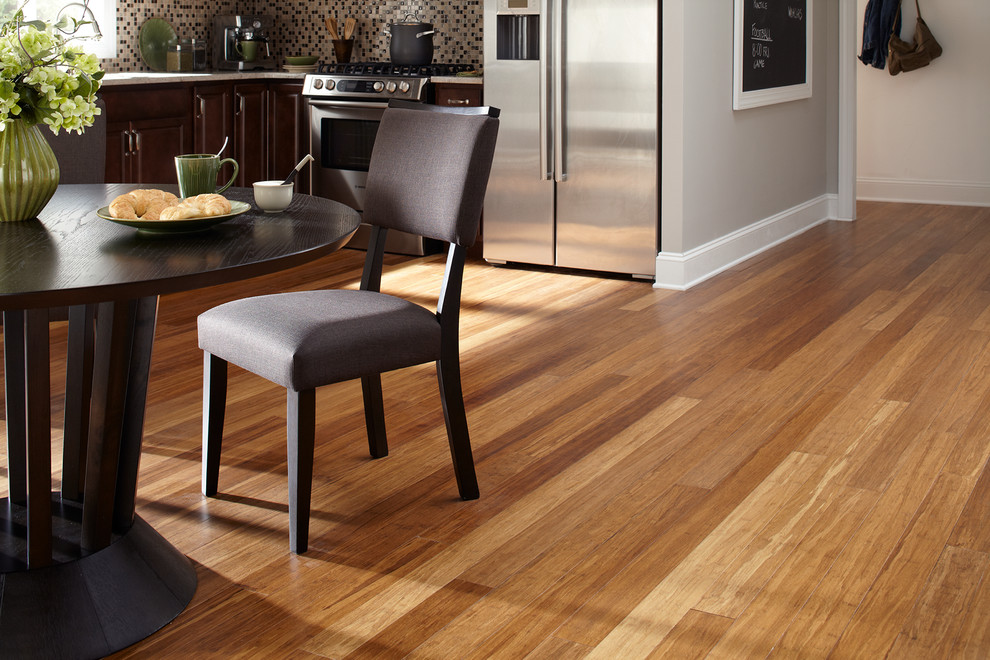
Photo by Wellmade Floor Coverings Int’l, Inc.
How to maintain bamboo flooring
Use soft mob or vacuum to clean:
Dust and dirt will fade away the shine and leave scratches on the surface of your bamboo flooring. It will also damage the floor. It will help if you rinse your floor well every day with a soft mob or vacuum to ensure that your floor always looks like new.
Clean your floor daily:
Some people clean their floor once or twice a week, but it will only harm the bamboo flooring. It should be cleaned daily.

Clean the liquid spins without any delay
Water is the enemy of your bamboo flooring. If anything in the form liquid spills on your floor, wipes it out instantly so that water is not soaked by the flooring.
Don’t scratch your floor
Don’t drag your furniture and don’t allow a scratch to be etched out on your bamboo flooring while trying to clean it up. Apply rubber pads on your furniture instead and always lift them and not pull them or slide them. This is going to protect your flooring from ugly scratch marks on its surface for a very long time and keep it fresh and new forever.
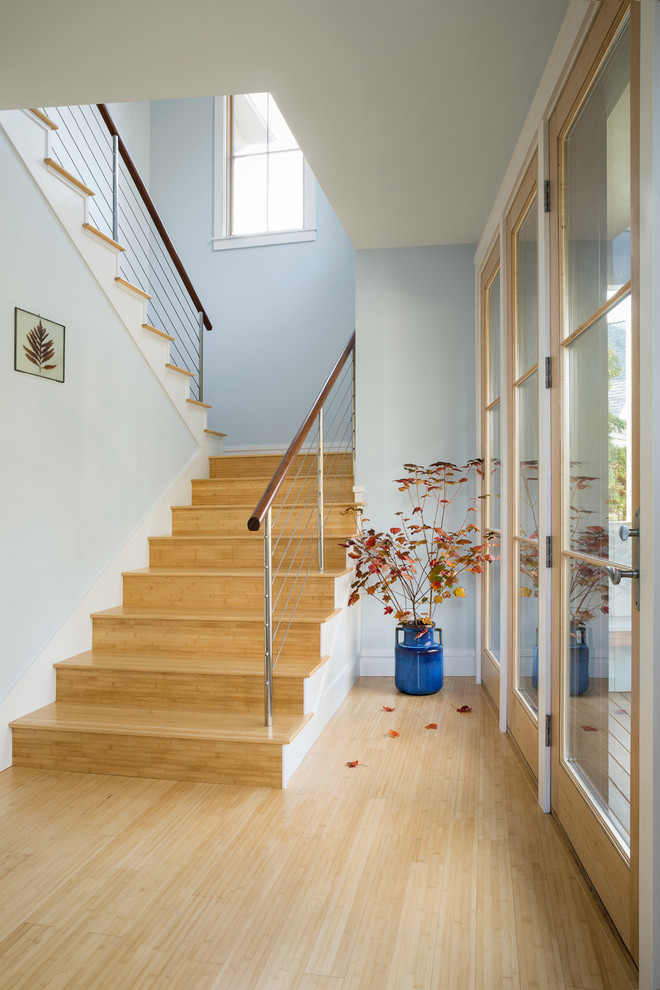
Photo by Priestley + Associates Architecture
Keeping doormats on the entrance
Doormats ensure that moisture, water, dirt, and grit from the outside do not enter the house, and the mats absorb it just at the gate. The habit of keeping these mats on the doors will keep your floor and house clean.
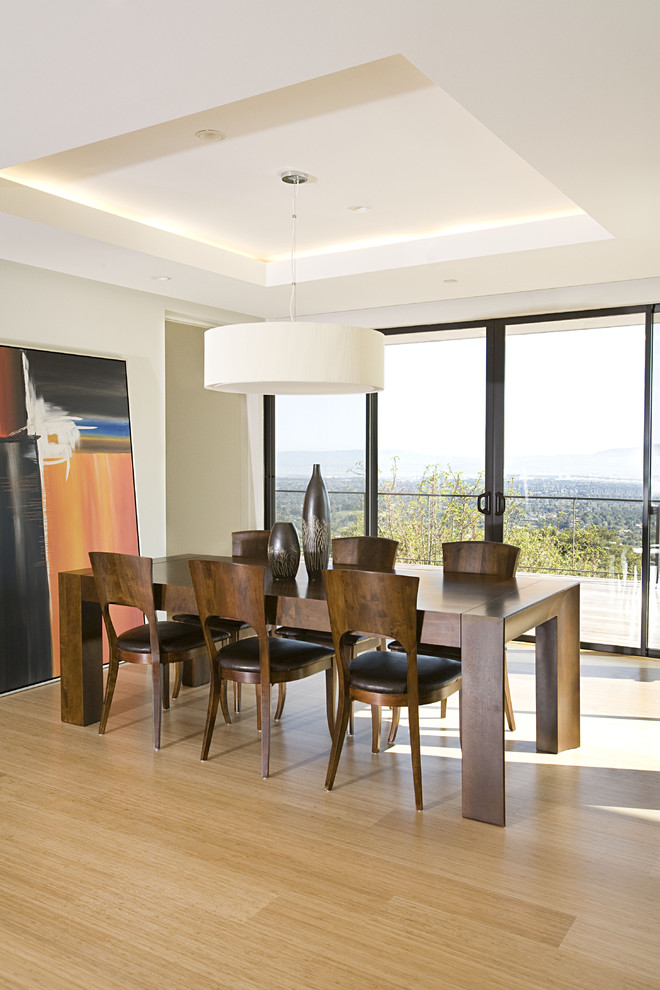
Photo by Mark English Architects, AIA
Keep your shoes outside
Foot wears with heals are also enemies of the bamboo flooring, and they will result in scratch on your floor the minute they enter. Therefore, keep in mind to keep your shoes outside and wear rubber slippers inside your house.
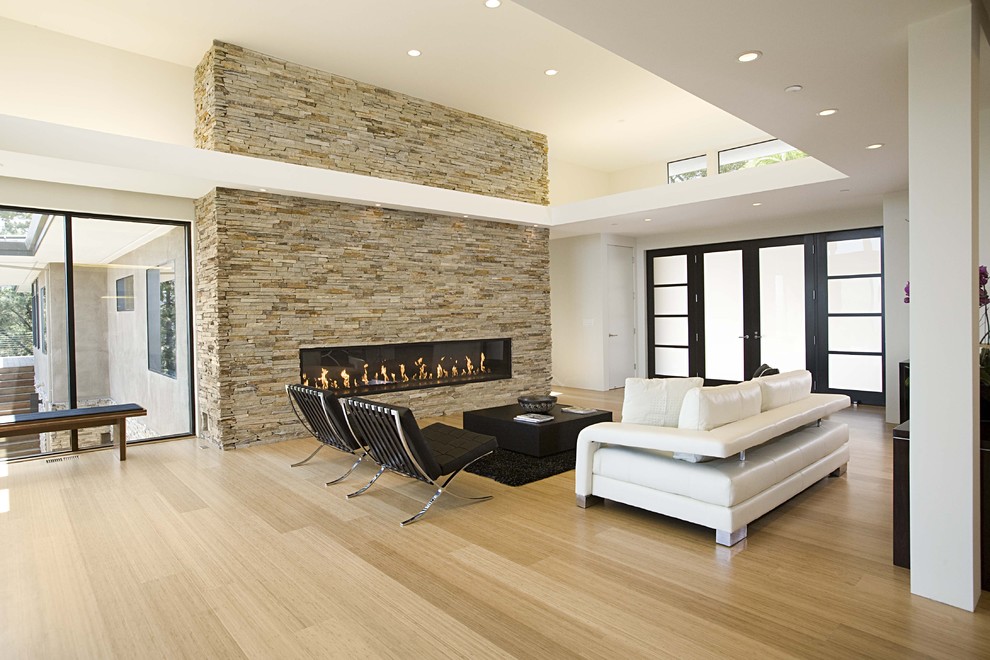
Photo by Mark English Architects, AIA
Avoid steam mop
Never use a steam mop on steam vacuum cleaner on bamboo flooring because the bamboo floor can absorb moisture and it can cause the planks to distort. Therefore, avoid Using a damp mop and get the floor dried up daily to keep them safe from such damage.
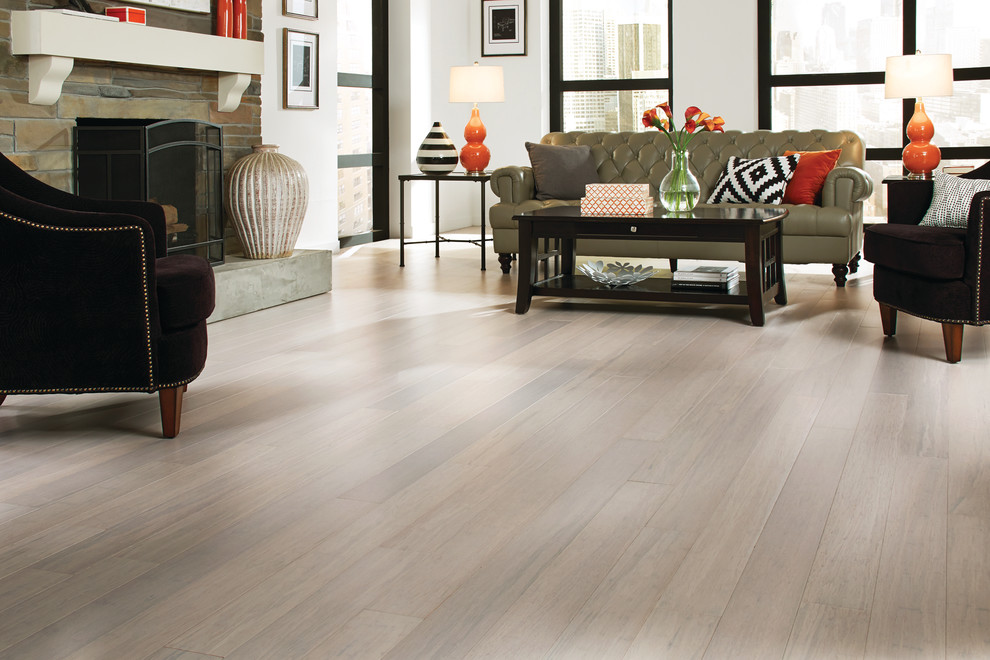
Photo by Lumber Liquidators Flooring
Avoid abrasive cleaning products
Always use cleaning products that are specially designed to clean bamboo flooring and avoid using acidic or harsh cleaning products that have ammonia in them because they can cause irreparable damage to your bamboo floor.
Avoid wax or furniture polish
Furniture polish, oils, and waxes are not meant for bamboo floors and should be avoided altogether.
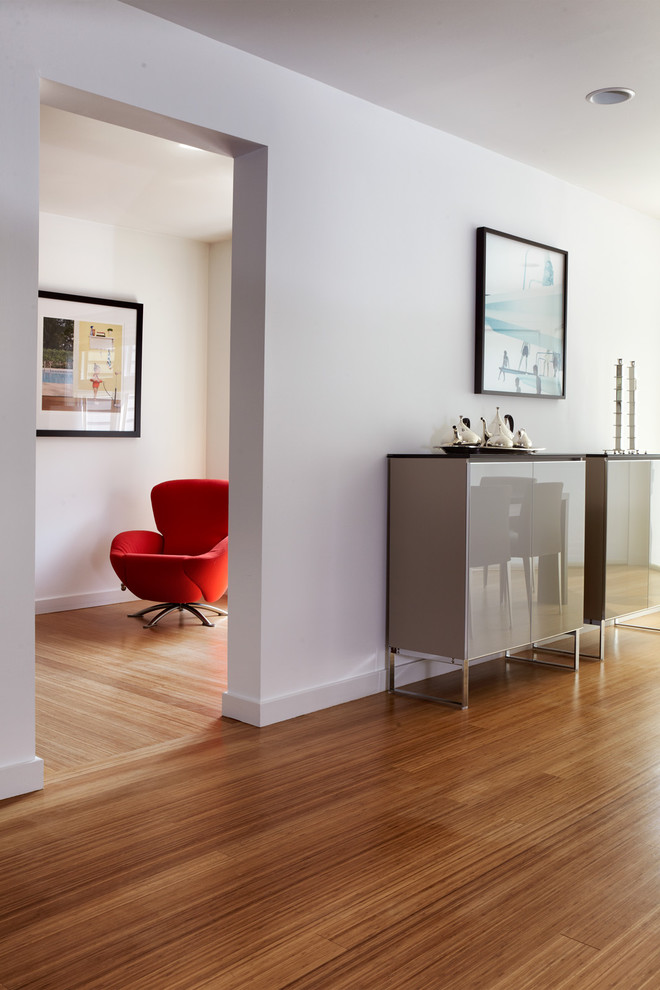
More attentively you will read the article and more religiously you will practice what is recommended above, brighter your bamboo flooring will glow and longer they will retain their shine. Floor that glitters in shimmer mirrors the aura of the personality of the person who lives there.
Author Bio
I am Holly Jacob, a passionate and qualified blogger. I write a unique and trendy article for readers on topics related to Home Improvement, Pet, Food, Automotive, Business, Health, Lifestyle etc.
The post Different Types Of Bamboo Flooring And Ways To Maintain It appeared first on YourAmazingPlaces.com.
from YourAmazingPlaces.com https://ift.tt/2O3cBCu








0 comments:
Post a Comment